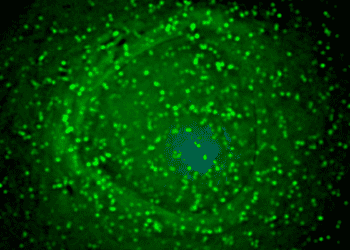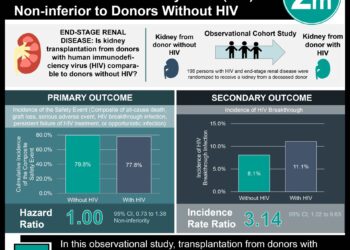Glucocorticoid compounds improve stem cell transplant efficiency in mice [PreClinical]
1. Following treatment with glucocorticoids, human hematopoietic stem cells (HSCs) from cord blood demonstrated enhanced homing and engraftment to bone marrow in mice.
2. Glucocorticoids improved HSC homing by increasing histone acetylation, which resulted in increased CXCR4 expression.
Evidence Rating Level: 2 (Good)
Study Rundown: HSCs from cord blood are used for hematopoietic cell transplantation to treat hematological disorders, but their low engraftment in the bone marrow remains a challenge. Because the CXCR4 protein is known to be involved in stem cell migration to the bone marrow, this study evaluated compounds that increased HSC expression of CXCR4.
A variety of compounds was tested to determine their effect on cord blood cell expression of CXCR4. This screen found that dexamethasone, a glucocorticoid, enhanced CXCR4 expression. When other glucocorticoids were tested, fluticasone propionate (Flonase) led to the greatest increase in CXCR4 expression. The effect of Flonase on stem cell transplantation was tested in mice. After human cord blood cells were treated with Flonase, they showed increased migration and engraftment in mouse bone marrow. The researchers then determined the mechanism through which glucocorticoids function. It was found that these compounds enhanced the acetylation of histones associated with the CXCR4 gene, leading to enhanced gene transcription.
By showing both the efficacy and underlying mechanism of glucocorticoid treatment in stem cell transplantation, this study demonstrated the potential of this therapeutic approach. Since glucocorticoids are an established treatment for a variety of conditions, their safety is has been evaluated. The optimal dose of these compounds as well as the clinical benefit of treated stem cells still need to be assessed, but this study presents a potential means to overcome the challenges of cord blood stem cell transplantation.
Click to read the study in Nature Medicine
Relevant Reading: Improving quality and potency testing for umbilical cord blood: A new perspective
In-Depth [animal study]: A nuclear receptor ligand library of 74 compounds was screened for the ability to increase CXCR4 expression of human cord blood CD34+ cells. This screen identified dexamethasone as the only compound to have a significant effect. When other glucocorticoids including methylprednisolone, hydrocortisone, and Flonase were tested, Flonase resulted in the greatest increase in CXCR4 expression (p<0.001).
Human cord blood CD34+ cells were then treated for 16 hours with Flonase and injected into irradiated immunodeficient NSG mice. Treated cells showed a 4.4-fold increase in homing efficiency as well as increased HSC engraftment after 4 months (p<0.05). The treated CD34+ cells from these transplanted mice were then isolated and introduced into secondary recipient NSG mice to determine whether they showed similar properties. Enhanced engraftment was noted in the secondary recipients as well (p<0.05), demonstrating the potential long-term efficacy of this treatment.
Real-time PCR demonstrated that Flonase treatment of human cord blood CD34+ cells led to an increase in CXCR4 mRNA levels (p<0.001). Chromatin immunoprecipitation analysis demonstrated enrichment for glucocorticoid receptors in the region of the CXCR4 promoter, leading to the examination of histone alteration in this region. Flonase treatment led to increased acetylation of lysines 5 and 16 on histone H4 (p<0.001), with no effect on histone H3, indicating the specific targeting of this drug to the CXCR4 promoter region.
Image: PD
©2017 2 Minute Medicine, Inc. All rights reserved. No works may be reproduced without expressed written consent from 2 Minute Medicine, Inc. Inquire about licensing here. No article should be construed as medical advice and is not intended as such by the authors or by 2 Minute Medicine, Inc.






